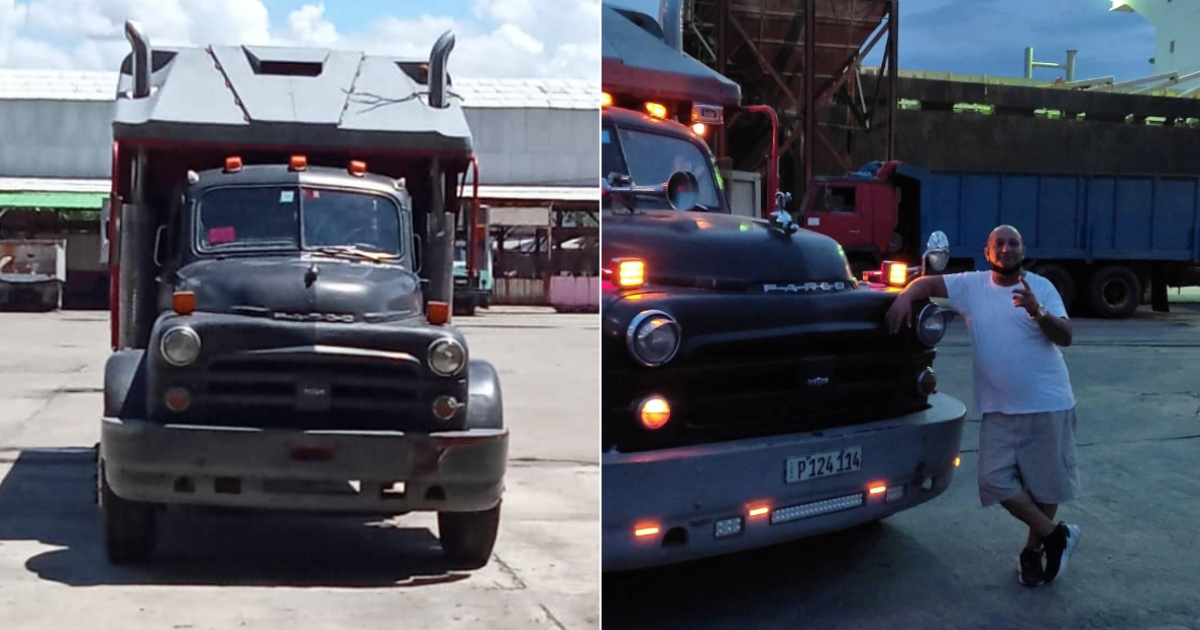A young Cuban woman has accused the authorities in Santiago de Cuba of illegally seizing her father's truck under the pretext of illicit activity and delaying the investigation to confiscate and appropriate the vehicle. Liset Vallejo Salazar shared her account on social media after authorities remained silent and delayed the sanctioning procedure to fraudulently confiscate the private transporter’s truck.
"I want to clarify that before making this publication, we filed complaints with the relevant authorities and were not heard. We turned to social media as a last resort; we didn't want to go public, but we had no other choice. Cuban Attorney General's Office, with all due respect, we want to be heard and for you to review the work of the prosecution in Santiago de Cuba," Vallejo Salazar stated on Facebook.
According to her testimony, her father and other truck drivers have been imprisoned for a year and a month, still awaiting trial. All this time, the vehicle has been held as "deposit" in the facilities of a state-owned company.
"My father, along with other truck drivers who worked for the port in Santiago de Cuba, have been in prison for a year and a month without trial. Their truck is in the DIVEP company, held as a deposit. Note, it is not confiscated, but the company is already commercializing it, and the prosecution is allowing it, as they knew this from the beginning, which is why they placed the truck there."
The family's and lawyers' complaints have been dismissed. Authorities tell them they are "not proceeding." Additionally, Vallejo Salazar claims that the case file against her father and his colleagues is full of false accusations "with thousands of irregularities."
It appears that the Santiago authorities accuse them of a theft that never occurred because "they never left the port, nor were there any economic losses since the soy was deposited in the silos."
"These trucks are the livelihood of children and elderly people without pensions, who now depend on neighbors and friends. In my father's case, it is a truck inherited from his father," the young woman explained.
The Truck’s Condition and Legal Concerns
The truck, a magnificent vehicle from the Fargo Motor Car Company of Chicago, later acquired by Chrysler and Dodge, appears to be in excellent condition despite being over six decades old. Photos shared by the young woman corroborate this.
However, following the vehicle's removal from its rightful owner, the family fears it might be "cannibalized" (disassembled for parts) or damaged due to the poor protection conditions of the deposit where it is held.
The company holding the vehicle and what the law says in Cuba
DIVEP (Division of Equipment and Parts) belongs to the State Group Corporation of SIME (Sideromechanical Industry). It handles the commercialization of heavy and light transport equipment, parts, accessories, and aggregates, including agricultural and construction machinery, along with all related activities, including imports and exports.
Among its activities are technical services, leasing equipment and facilities, and selling parts, pieces, aggregates, and accessories widely used by the population.
With the approval of Law No. 143 "Law on Criminal Procedure" in 2021, the criminal instructor has a maximum period of 90 days to carry out investigative actions and other preparatory phase procedures. However, the prosecutor can grant an extension for completing the case file, which can extend up to 180 days from the date of the initial resolution. "At that point, the criminal instructor must hand it over to the prosecutor in its current state, and exceptionally, the Cuban Attorney General's Office can grant a further extension for completing the case file, based on the complexity of the issue."
Legal and Procedural Concerns in Santiago de Cuba
In light of the allegations made by Liset Vallejo Salazar, several questions arise regarding the legal and procedural practices in Santiago de Cuba. Here are some key questions and answers that may provide further insight into the situation:
What are the legal timeframes for criminal investigations in Cuba?
According to Law No. 143 "Law on Criminal Procedure," the criminal instructor has a maximum of 90 days to conduct investigative actions. This period can be extended up to 180 days with the prosecutor's approval, and the Attorney General's Office can grant further extensions based on the case's complexity.
What is the role of DIVEP in this case?
DIVEP, a state-owned company, is holding the truck as a "deposit." Despite not being officially confiscated, the company is reportedly commercializing the vehicle, and the prosecution is allegedly aware and permitting this.
What are the main allegations made by Liset Vallejo Salazar?
Liset Vallejo Salazar alleges that her father's truck was seized under false pretenses of illicit activity. She also accuses the authorities of delaying the investigation to fraudulently confiscate the vehicle, despite the case being full of irregularities and false accusations.
Why is the truck important to Liset Vallejo Salazar's family?
The truck is vital for the family's livelihood, supporting children and elderly individuals without pensions. It is also a family heirloom inherited from Liset's grandfather.
